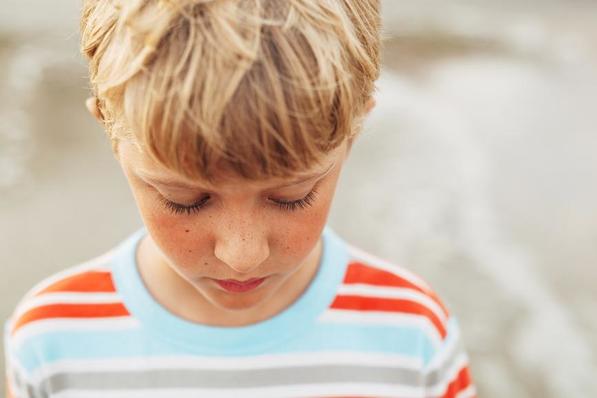|
Parents are trying hard. Really hard. I see it every day both within my psychology practice and with my own parenting friends and family. Whether it’s doing your best to channel the communication skills of a hostage negotiator as you convince your 5yo to have a shower (because, you know, it’s been four days and this kid really needs to bathe), or whether it’s setting boundaries with your teen on social media after discovering she has been involved in a cyberbullying incident, IT IS HARD.
Throughout this roller coaster ride we call parenting, we are continually faced with decisions regarding discipline. One way parents might respond to a child’s undesirable behaviour involves shaming. Parents generally use shame to get children to do what the parents want. It’s a way to control the situation. Shaming occurs when we speak to our children in certain ways. It involves a comment about what a child IS, rather than about the child’s BEHAVIOUR, that gives children a negative view of themselves. Shaming can sound like this: “You’re a horrible girl”, “You are so selfish – share!”, “That’s how a baby acts. Are you a baby?”, “Stop acting like an idiot”. Parents might think that if they make their child feel bad enough then they will think twice before behaving the same way again. But over time, shamed children become withdrawn and feel less capable to make good decisions. Research tells us that feeling shamed is associated with feelings of unworthiness, low self-esteem, depression, anxiety, eating disorder symptoms, port-traumatic stress disorder and suicidal ideation. Feeling shamed is related to risky behaviours. You may instead want your children to feel remorse, to understand their actions are not OK, and to know the impact their behaviour has on others. If you want these factors to be what drives your children to behave better in the future, then it’s GUILT you’re after, not shame. Guilt can lead to emotional growth whereas shame is debilitating and can cause all kinds of problems. It has a much more inward focus then guilt. Guilt teaches “I did a bad thing”. Shame teaches “I am a bad person”. But even the most well-intentioned parents might default to shaming language during stressful times. We lose control of ourselves and things slip out of our mouths in the heat of the moment. Let’s face it – adults can be as impulsive as kids at times! When our buttons are pushed, shaming helps relieve parenting frustration and release anger. We do not want our children to feel that they aren’t worthy. Some of you will know what this feels like. It’s painful, and damaging. So I encourage you to think of the bigger picture. Think about the children you are raising. What are your hopes for them? If you are like the many parents, it’s safe to assume that you want your children to be successful. You want them to go out into this world with an ‘I can’ attitude. Brene Brown, shame researcher, states in her book Daring Greatly: How the Courage to Be Vulnerable Transforms the Way We Live, Love, Parent, and Lead, “…when it comes to our feelings of love, belonging, and worthiness, we are most shaped by our families of origin — what we hear, what we’re told, and perhaps most importantly, how we observe our parents engaging in the world.” If you want your children to feel they are worthy, then work hard to create new habits of how you relate to your kids when they are acting inappropriately. It’s not necessary for a child to feel bad about themselves to learn better behaviours. A 2-year-old boy reaches for a biscuit that has been left on the counter “Naughty boy! You’ve had one already!” his mother says sternly, hitting his hand away. Now a 5-year-old, the boy is drawing and gets black ink on the armchair. “You cause me no end of trouble! Get to your room!”, his mother shouts. Now an 8-year-old, the boy is getting ready for basketball training, and struggles to tie his laces. “You’re hopeless” says his father in an exasperated tone as he ties them up for him.
What is the repeated message this child has received from his parents over the years? He has learned that he is naughty, a trouble maker and not good enough. The way he feels and acts are bad and he is a disappointment to his parents. The parents in this case are communicating in a way that shames their son. They are implying he is “bad” rather than focusing on the “bad” behaviour. He experiences a great deal of shame. As Brene Brown states: “Shame corrodes the part of us that believes we can do and be better. When we shame and label our children we take away their opportunity to grow and try on new behaviours. If a child tells a lie, she can change the behaviour. If she is a liar - where’s the potential for change in that?” Being criticised and humiliated affects a child’s self-esteem for years to come. The words you use to label your children will become their inner voice. The words you use will shape their self-identity. The little voice in your child’s head will repeat these words to himself when he makes mistakes. As he grows, he will shame himself in just the same way as he has been shamed over the years by those closest to him. One of the amazing things about a child’s brain is that it is changeable. Repeated experiences affect brain growth and development. How do you want your child’s brain to develop? Over time, the repeated experiences of our child influence this change. This, of course, includes the thousands of interactions you have with them. Given this, it is important to respond to your child with love and sensitivity as best you can so as to nurture the brain and overall development. Let’s look at the same child but with different style of parenting: A 2-year-old boy reaches for a biscuit that has been left on the counter “Oh you would really like another biscuit. No more today. Come sit on my lap and look at this book.” his mother says empathetically. Now a 5-year-old, the boy is drawing and gets black ink on the armchair. After taking a few seconds to compose herself, his mother says, “Hmm you were trying to colour the pages but you got ink on the couch. Help me try to get it off and then you can colour at the table”. Now an 8-year-old, the boy is getting ready for basketball training and struggles to tie his laces. “It looks like you need a little help. Can I show you again one way to do them?” says his father in an encouraging tone as he slowly goes through the steps to shoe tying. This child has a different experience than the first. The messages he has learned is that he is loved, supported and that his feelings matter. He and his parents are on the same team. He is worthy. Shaming by parents is very common and is often deemed acceptable. But just because it is common does not mean it is OK. Our words matter. You may be reading this thinking of the times you have used shaming language with your own children. You might be feeling guilty or regret for some of the things you have said in the past. Be kind to yourself. Even the most expert of child experts is bound to have made some bad parenting decisions in their time. We are emotional beings after all. You can become more intentional about the experiences you give your children. You can more carefully choose the words you speak and the way you treat your child. I want you to remember the child’s brain is changeable. All of a child’s experiences affect the brain and influences the way they view and interact with the world. What will your words and actions be teaching your child? |
Categories
All
|
Hopscotch & HarmonyAt Hopscotch & Harmony Psychology, you can expect compassionate care and evidence-based guidance on your journey to wellness.
With clinics in Werribee and Belmont, as well as providing online counselling to clients who live throughout Australia, our dedicated team of psychologists and dietitians are committed to providing support to children, teenagers and adults. With a focus on understanding your unique needs, we offer tailored solutions to foster growth and resilience. Trust in our experience and dedication as we work together towards your well-being. Welcome to a place where healing begins and possibilities abound. |
Our services |
Contact usHopscotch & Harmony
Child, Teen and Adult Psychology Our Locations:
WERRIBEE: 1/167-179 Shaws Rd
BELMONT: 92 Roslyn Rd AUSTRALIA-WIDE: Online counselling |
Hopscotch and Harmony respectfully recognise the Aboriginal and Torres Strait Islander people as the first Peoples of the continent now called Australia.
We acknowledge the Bunurong and Wadawurrung people of the Kulin Nation, the traditional owners of the land on which we work, and pay our respects to their Elders, past, present and emerging.
© 2024 Hopscotch and Harmony Pty Ltd



 RSS Feed
RSS Feed
